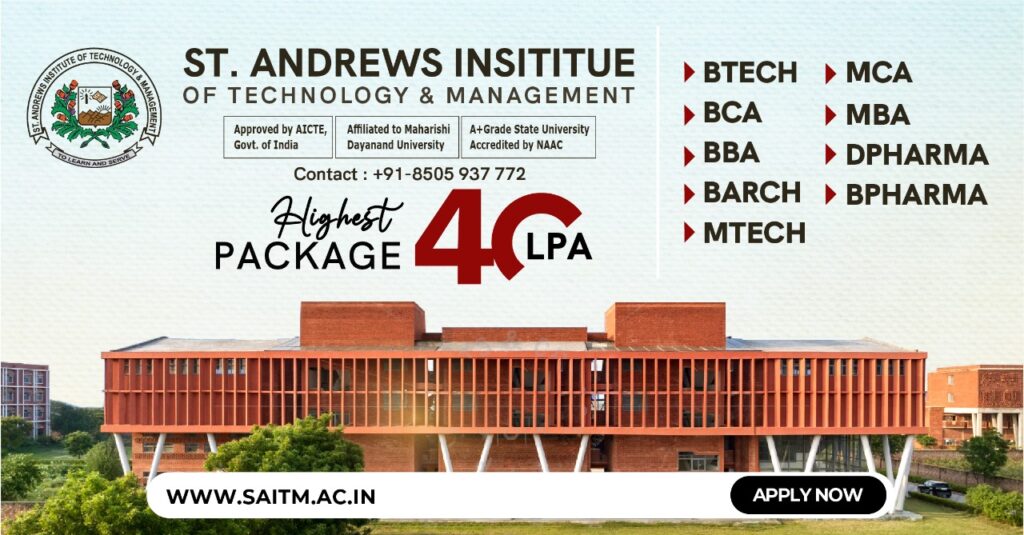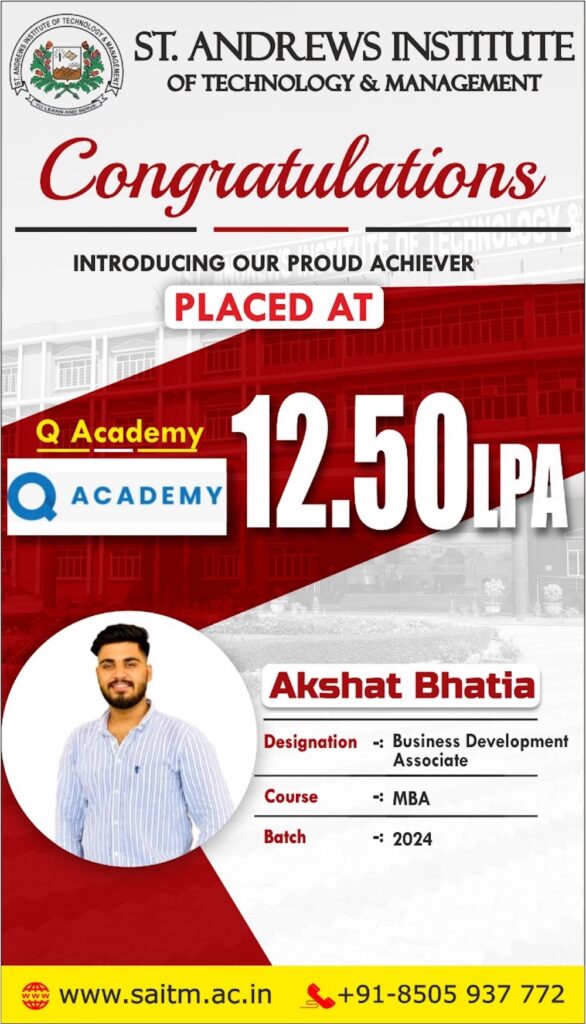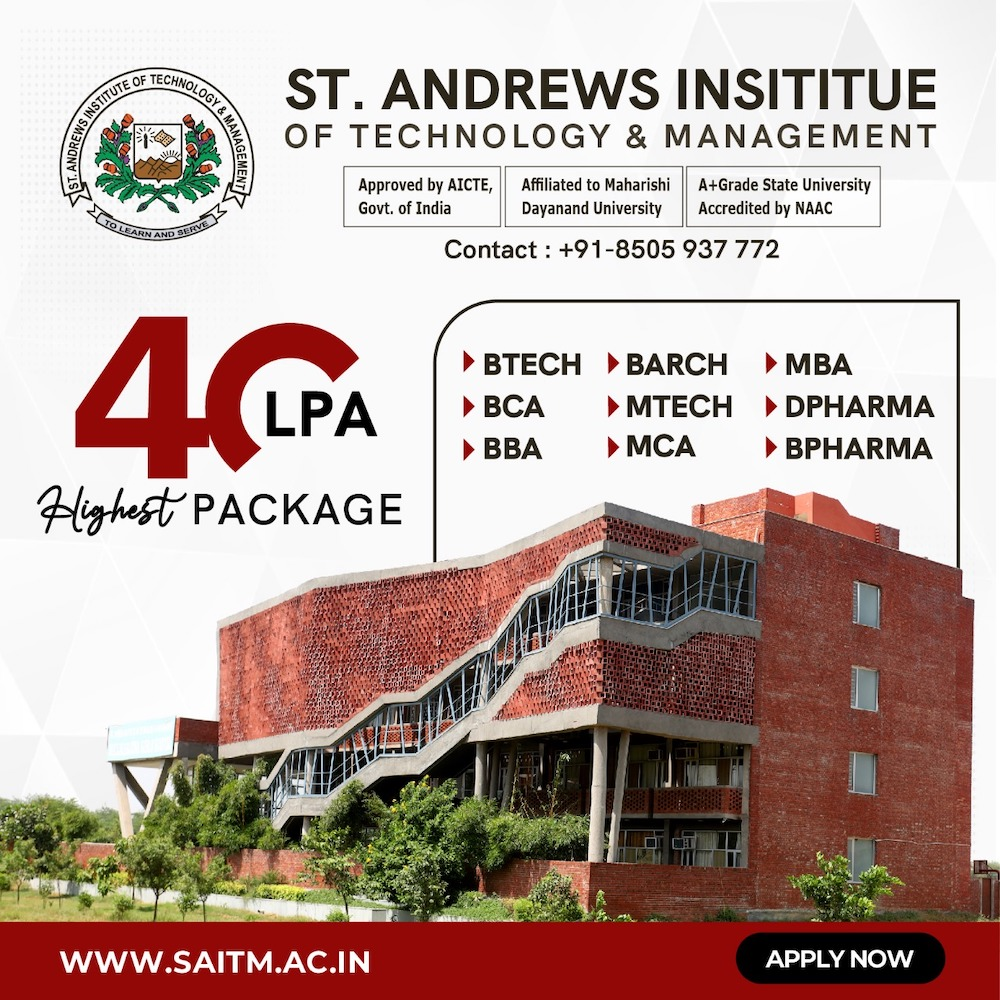MBA Courses

“MBA courses” generally refer to the subjects and curriculum covered within a Master of Business Administration (MBA) program. These courses are designed to equip students with the skills, knowledge, and competencies required for leadership roles in various business sectors.
Typical MBA courses include:
Accounting and Financial Management
Covers principles of accounting, financial reporting, analysis, and decision-making, providing a foundation for financial management in organizations.
Marketing Management
Explores marketing strategies, consumer behavior, market research, branding, advertising, and digital marketing techniques to develop effective marketing plans.
Operations Management
Focuses on managing processes, supply chains, and operations to ensure efficiency, quality, and productivity within organizations.
Organizational Behavior
Examines individual and group behavior in organizations, leadership styles, motivation, communication, and organizational culture to enhance managerial effectiveness.
Strategic Management
Addresses strategic analysis, formulation, and implementation, including competitive analysis, corporate strategy, business models, and strategic decision-making.
Human Resource Management
Covers topics such as recruitment, selection, training, performance appraisal, compensation, and employee relations to effectively manage human capital.
Business Ethics and Corporate Social Responsibility
Explores ethical dilemmas in business, corporate governance, sustainability, and social responsibility to promote responsible business practices.
Entrepreneurship and Innovation
Focuses on developing entrepreneurial skills, opportunity recognition, business planning, innovation management, and new venture creation.
Global Business
Examines global markets, cross-cultural management, international trade, foreign direct investment, and global strategy to navigate the complexities of global business environments.
Business Analytics and Data Science
Covers statistical analysis, data visualization, predictive modeling, and data-driven decision-making to leverage data for strategic insights and competitive advantage.
Finance and Investment Management
Includes topics such as financial markets, investment analysis, portfolio management, corporate finance, and risk management to support financial decision-making and investment strategies.
Information Technology Management
Addresses the role of technology in business, IT strategy, digital transformation, cybersecurity, and information systems management.
Some of the most opted courses in India and St. Andrews college or different Engineering college or Management colleges are as follows:-
- Btech
- Btech CSE
- Btech ETCE
- MTech
- BCA
- BBA
- MBA
- MCA
- DPharma – St. Andrews College of Pharmacy
- BPharma – St. Andrews College of Pharmacy
- BArch – St. Andrews College of Architecture
MBA Courses Eligibility Criteria

The qualifications needed for enrollment in MBA programs can differ based on the college and the particular course of study. Nonetheless, numerous MBA colleges share a set of standard prerequisites that are often required for admission into their MBA courses.
Here are the general eligibility criteria for MBA courses:
Educational Qualifications
Candidates are usually required to have a bachelor’s degree from a recognized university or institution.
The degree can be in any discipline, although some MBA degrees may prefer candidates with a background in business, management, economics, engineering, or related fields.
Minimum Percentage or GPA
Many MBA programmes require candidates to have a minimum percentage or GPA in their undergraduate studies.
The minimum percentage or GPA requirement can vary widely depending on the institution and the competitiveness of the program.
Work Experience (Optional)
While certain MBA colleges are open to admitting students immediately following their undergraduate education, many others seek applicants who bring some pertinent work experience to the table.
Work experience requirements, if any, vary depending on the program and may range from zero to several years.
Entrance Exams
Many MBA programs require candidates to take standardized entrance exams such as the Common Admission Test (CAT) for admission.
Some programs may also accept other entrance exams such as the Management Aptitude Test (MAT).
Letters of Recommendation
Many MBA colleges might ask applicants to provide letters of recommendation from either academic or professional contacts as part of the application process.
Statement of Purpose (SOP) or Personal Statement
Candidates may be required to submit a statement of purpose or personal statement outlining their academic background, career goals, and reasons for pursuing an MBA.
Interview
Some MBA programs may require candidates to participate in an interview as part of the admissions process.
Admission Process For MBA Courses

The admission process for MBA courses in India typically involves several stages and may vary slightly depending on the institution and the specific program.
Here is a general overview of the admission process for MBA in India:
Entrance Exams
Many MBA programmes in India require candidates to take a national-level entrance exam as admission process. The most common entrance exams for MBA programs in India include the Common Admission Test (CAT), Xavier Aptitude Test (XAT), Management Aptitude Test (MAT) and Common Management Admission Test (CMAT). Candidates must register for the exam, appear for it, and obtain a competitive score.
Application Form
After receiving their entrance exam scores, candidates must apply to the MBA programs of their choice by filling out the application forms provided by the respective institutions. These application forms are typically available online on the official websites of the business schools.
Shortlisting
Business schools shortlist candidates based on their entrance exam scores, academic performance, work experience (if applicable), and other criteria specified by the institution. Shortlisted candidates are typically invited for further evaluation, which may include group discussions (GD) and personal interviews (PI).
Group Discussion (GD)
Some MBA programs conduct group discussions to assess candidates’ communication skills, leadership potential, ability to work in teams, and critical thinking skills. GD topics may range from current affairs to business-related issues.
Personal Interview (PI)
Shortlisted candidates are typically interviewed by a panel of faculty members or industry professionals. The personal interview allows the admissions committee to assess candidates’ motivation, interpersonal skills, career aspirations, and suitability for the MBA programs.
Final Selection
Business schools make final admission decisions based on candidates’ performance in the entrance exam, GD, PI, academic background, work experience, and other relevant factors. Selected candidates receive admission offers from the institutions.
Acceptance and Enrollment
Candidates who receive admission offers must accept the offer by paying the admission fee within the stipulated deadline. Upon acceptance, candidates are officially enrolled in the MBA programs and receive further instructions regarding orientation, course registration, and other administrative matters.
Popular MBA Courses Entrance Exams in India

In India, several MBA entrance exams are specifically conducted for admission to government colleges or institutes offering MBA programs. These exams are widely recognized and accepted by prestigious government-run business schools across the country.
Here are some popular MBA entrance exams for government colleges in India:
CAT (Common Admission Test):
- Conducted by the Indian Institutes of Management (IIMs) on a rotational basis.
- CAT scores are accepted by all 20 Indian Institutes of Management (IIMs) and various other top-tier management institutes across India.
- CAT is considered one of the most competitive MBA entrance exams in India and is a prerequisite for admission to most government-run MBA programs.
CMAT (Common Management Admission Test):
- Conducted by the National Testing Agency (NTA).
- CMAT scores are accepted by AICTE-approved management institutes, including several government colleges, across India.
- CMAT assesses candidates’ proficiency in Quantitative Techniques & Data Interpretation, Logical Reasoning, Language Comprehension, and General Awareness.
MAT (Management Aptitude Test):
- Conducted by the All India Management Association (AIMA).
- MAT scores are accepted by various management institutes including several government colleges across India.
- MAT is conducted four times a year, and candidates can choose to appear in any of the sessions.
ATMA (AIMS Test for Management Admissions):
- Conducted by the Association of Indian Management Schools (AIMS).
- ATMA scores are accepted by AICTE-approved management institutes, including some government colleges, across India.
- ATMA evaluates candidates’ skills in Analytical Reasoning, Verbal Ability, and Quantitative Aptitude.
MAH CET (Maharashtra Common Entrance Test):
- Conducted by the State Common Entrance Test Cell, Maharashtra.
- MAH CET scores are accepted by various government colleges and universities offering MBA programs in Maharashtra.
- The exam evaluates candidates’ proficiency in Logical Reasoning, Abstract Reasoning, Quantitative Aptitude, and Verbal Ability/Reading Comprehension.
Skills Required For MBA Courses

The skills required for an MBA course can vary depending on the specific program and specialization.
However, several core skills are generally considered essential for success in MBA programs:
Analytical Skills
MBA program candidates need strong analytical abilities to evaluate complex business problems, make data-driven decisions, and develop strategic solutions. This includes quantitative analysis, financial modeling, and critical thinking.
Communication Skills
Effective communication is crucial for MBA program candidates to articulate ideas, influence stakeholders, and collaborate with team members. This includes verbal communication, written communication, presentation skills, and active listening.
Leadership Skills
MBA programs often focus on developing leadership capabilities, including the ability to inspire and motivate others, lead teams, and drive organizational change. This involves understanding leadership styles, conflict resolution, and emotional intelligence.
Problem-Solving Skills
MBA candidates should be adept at identifying problems, generating creative solutions, and implementing effective strategies. This requires problem-solving techniques, innovation, and adaptability.
Teamwork and Collaboration
MBA candidates frequently work in team-based environments, so strong teamwork and collaboration skills are essential. This involves respecting diverse perspectives, leveraging individual strengths, and contributing effectively to group projects.
Time Management and Organization
MBA programs can be demanding, requiring students to juggle multiple responsibilities and deadlines. Effective time management and organizational skills are essential for staying on top of coursework, projects, and extracurricular activities.
Interpersonal Skills
Students those pursue MBA interact with a diverse range of people, including classmates, professors, recruiters, and industry professionals. Strong interpersonal skills are critical for building relationships, networking, and navigating social dynamics.
Ethical and Professional Integrity
Students those pursue MBA should demonstrate ethical behavior and professional integrity in their academic work, interactions with others, and decision-making processes. This involves upholding ethical standards, maintaining confidentiality, and acting with honesty and transparency.
Global Awareness and Cultural Sensitivity
In today’s interconnected world, Students those pursue MBA must possess a global mindset and cultural sensitivity. This includes understanding Global Business practices, appreciating cultural differences, and navigating cross-cultural contexts.
Tech Savviness
Given the increasing reliance on technology in business, Students those pursue MBA should be comfortable with using various digital tools and platforms for research, analysis, communication, and presentation.
Different Types of MBA Courses

Different types of MBA courses include:
Full-time MBA
A traditional two-year program offering a comprehensive curriculum covering various aspects of business management. Students attend classes full-time and typically have the opportunity for internships during the summer break.
Part-time MBA
Designed for working professionals who wish to pursue an MBA while continuing their careers. Classes are often held in the evenings or weekends, allowing students to balance work and study.
Executive MBA (EMBA)
Geared towards experienced professionals with significant managerial experience. EMBA program typically have a condensed schedule, allowing students to earn their degree while continuing to work full-time.
Online MBA
Delivered entirely online, these programs offer flexibility for students who may not be able to attend traditional on-campus classes. Online MBAs often cover the same curriculum as on-campus programs but allow students to study remotely.
Dual Degree MBA
Combines an MBA with another graduate degree program, such as a Master of Science (MS) in Finance, Master of Public Administration (MPA), or Master of Science in Information Systems (MSIS). Dual degree programs offer interdisciplinary education and may require additional time to complete.
Specialized MBA
Focuses on specific industries or functional areas of business, such as healthcare management, finance, marketing, entrepreneurship, or sustainability. These programs offer in-depth knowledge and skills tailored to particular career paths.
Global MBA
Emphasizes international business and offers opportunities for students to study abroad, participate in global consulting projects, or engage with multinational companies. Global MBAs prepare students for leadership roles in the global marketplace.
Mini MBA
Short-term, non-degree programs that provide an overview of MBA-level topics and concepts. Mini MBAs are often targeted towards professionals seeking to enhance their business knowledge or skills in a condensed format.
Accelerated MBA
Intensive programs that allow students to earn their MBA in a shorter time frame than traditional programs. Accelerated MBAs may involve a more rigorous course load and require students to have prior business education or experience.
MBA Course Duration

The duration of an MBA course can vary depending on several factors, including the type of MBA programs, the institution offering the MBA, and whether the MBA programs are full-time, part-time, or accelerated.
However, the most common MBA course durations are:
Two-Year Full-Time MBA
This is the traditional format for MBA programs, where students attend classes full-time for two academic years. The programs typically consists of four semesters, with breaks during the summer for internships or elective courses.
One-Year Full-Time MBA
Some business schools offer accelerated one-year MBA programs for students with significant prior business education or work experience. These MBA programs are intensive and typically do not include breaks for internships or elective courses.
Part-Time MBA
Part-time MBA programs are designed for working professionals who want to earn an MBA while continuing to work. These programs typically take three to four years to complete, with classes held in the evenings or weekends to accommodate students’ work schedules.
Executive MBA (EMBA)–
EMBA program are designed for experienced professionals in leadership positions. These programs are typically part-time and can take anywhere from 12 months to three years to complete, depending on the schedule and format of the program.
Online MBA:
Online MBA programs offer flexibility for students to study at their own pace and typically take two to three years to complete. However, some accelerated online MBA degree can be completed in as little as 12 months.
Dual Degree MBA Programs
Dual degree MBA programs, which combine an MBA with another graduate degree, may take longer to complete depending on the specific requirements of both programs. These programs can range from two to four years in duration.
Choosing Top MBA College

Choosing the right MBA college is a crucial decision that can significantly impact your academic and professional development.
Here are some key factors to consider when selecting a top MBA college:
Accreditation
Ensure that the MBA programs and the college are accredited by recognized accrediting bodies. Accreditation ensures that the program meets certain standards of quality and credibility.
Reputation and Ranking
Research the reputation and ranking of the MBA college. Consider factors such as faculty expertise, alumni network, industry connections, and overall prestige. Look for rankings from reputable sources such as QS World University Rankings, Financial Times, or The Economist.
Curriculum and Specializations
Evaluate the curriculum and specializations offered by the MBA college. Look for programs that offer a diverse range of courses and specializations aligned with your career goals and interests. Consider whether the curriculum includes experiential learning opportunities such as internships, consulting projects, or study abroad programs.
Faculty Quality and Expertise
Assess the quality and expertise of the faculty members. Look for professors with relevant industry experience, research expertise, and a track record of academic excellence. Faculty members who are actively engaged in research and industry collaborations can provide valuable insights and networking opportunities.
Career Services and Placement Support
Consider the career services and placement support provided by the MBA college. Look for colleges that offer career counseling, resume building workshops, interview preparation, and networking opportunities with recruiters and alumni. Evaluate the placement record of the college, including placement rates, average salaries, and the types of companies recruiting graduates.
Industry Connections and Corporate Partnerships
Research the industry connections and corporate partnerships of the MBA college. Look for colleges that have strong ties with leading companies, industry associations, and alumni networks. Consider whether the college organizes guest lectures, seminars, or networking events with industry professionals.
Infrastructure and Facilities
Evaluate the infrastructure and facilities available at the MBA college. Consider factors such as library resources, computer labs, classrooms, student accommodation, recreational facilities, and campus amenities. A well-equipped campus with modern facilities can enhance the learning experience and student life.
Location and Campus Environment
Consider the location and campus environment of the MBA college. Think about factors such as proximity to major business hubs, cost of living, climate, cultural opportunities, and campus safety. Choose a location that aligns with your personal preferences and lifestyle.
Cost and Financial Aid
Evaluate the cost of tuition fees, living expenses, and other related expenses. Consider whether the MBA college offers financial aid, scholarships, or assistantships to support students with their educational expenses. Calculate the return on investment (ROI) of the program in terms of potential career advancement and earning potential.
Student Feedback and Alumni Reviews
Seek feedback and reviews from current students and alumni of the MBA college. Connect with alumni through social media platforms, professional networks, or alumni events to learn about their experiences, career paths, and satisfaction with the program.
Top MBA Specialisations

The top MBA Specialisations Courses often reflect emerging trends in the business world and align with the demands of various industries.
Some of the top specializations in MBA courses include:
Finance
Finance specialization focuses on financial management, investment analysis, corporate finance, financial markets, and risk management. Graduates with a finance specialization often pursue careers in investment banking, corporate finance, financial planning, or asset management.
Marketing
Marketing specialization covers areas such as market research, branding, advertising, digital marketing, consumer behavior, and marketing strategy. Graduates with a marketing specialization can pursue careers in brand management, marketing research, advertising, digital marketing, or product management.
Entrepreneurship
Entrepreneurship specialization focuses on developing entrepreneurial skills, venture creation, business planning, innovation management, and new venture financing. Graduates with an entrepreneurship specialization often start their own businesses or work in entrepreneurial roles within existing organizations.
Operations Management:
Operations management specialization covers topics such as supply chain management, logistics, production planning, quality management, and process improvement. Graduates with an operations management specialization can pursue careers in operations, supply chain management, logistics, or manufacturing.
Human Resource Management (HRM)
HRM specialization focuses on topics such as talent management, recruitment, performance management, employee relations, and organizational development. Graduates with an HRM specialization can pursue careers in HRM, organizational development, training, or labor relations.
Information Technology (IT) Management
IT management specialization covers areas such as IT strategy, digital transformation, information systems management, cybersecurity, and technology consulting. Graduates with an IT management specialization can pursue careers in IT management, technology consulting, project management, or systems analysis.
Healthcare Management
Healthcare management specialization focuses on healthcare administration, healthcare policy, healthcare economics, and healthcare marketing. Graduates with a healthcare management specialization can pursue careers in hospital administration, healthcare consulting, healthcare policy analysis, or pharmaceutical management.
Global Business–
MBA specialisation in Global Business covers topics such as global markets, cross-cultural management, international trade, foreign investment, and global strategy. Graduates with an international business specialization can pursue careers in international marketing, global business development, international trade, or international consulting.
Supply Chain Management
MBA specialisation in Supply chain management focuses on optimizing the flow of goods and services from suppliers to customers. Topics include supply chain optimization, inventory management, logistics, and procurement. Graduates can pursue careers in supply chain management, logistics management, or procurement management.
Sustainability and Corporate Social Responsibility (CSR)
MBA specialisation in Sustainability and CSR covers topics such as environmental sustainability, social responsibility, ethical business practices, and corporate governance. Graduates can pursue careers in sustainability management, CSR consulting, or corporate social responsibility.
MBA Courses Syllabus

The syllabus for MBA courses can vary depending on the business school, the specific MBA , and the chosen specialization.
However, here is a general overview of the typical MBA syllabus:
Core Courses:
- Financial Accounting
- Managerial Accounting
- Corporate Finance
- Microeconomics
- Macroeconomics
- Business Statistics
- Operations Management
- Marketing Management
- Organizational Behavior
- Strategic Management
Functional Area Courses:
- Finance:
- Investment Analysis
- Financial Markets and Institutions
- Financial Statement Analysis
- Derivatives and Risk Management
- Marketing:
- Consumer Behavior
- Marketing Research
- Brand Management
- Digital Marketing
- Operations/Supply Chain Management:
- Supply Chain Management
- Logistics Management
- Quality Management
- Project Management
- HRM:
- Talent Management
- Performance Management
- Compensation and Benefits
- Organizational Development
Elective Courses (may vary based on specialization and program):
- Entrepreneurship
- Global Business
- Healthcare Management
- Information Technology Management
- Sustainability and Corporate Social Responsibility
- Negotiation and Conflict Resolution
- Business Analytics and Big Data
- Leadership Development
Capstone Project or Thesis:
- Many MBA programs require students to complete a capstone project or thesis in their final semester. This project often involves applying the knowledge and skills gained throughout the program to solve real-world business problems or conduct original research.
Internship or Experiential Learning:
- Some MBA courses include internship opportunities or experiential learning components where students gain hands-on experience in a business setting. This can involve consulting projects, internships with companies, or study abroad programs.
Professional Development and Soft Skills:
- Communication Skills
- Leadership
- Teamwork and Collaboration
- Presentation Skills
- Time Management and Prioritization
Browse Top MBA Colleges Accepting CAT Score: Location-Wise

Here are some of the top MBA colleges in India that accept CAT scores, categorized by location:
Northern India:
Indian Institute of Management, Lucknow – Lucknow, Uttar Pradesh
Faculty of Management Studies (FMS), University of Delhi – New Delhi, Delhi
Indian Institute of Technology, Delhi (Department of Management Studies) – New Delhi, Delhi
Indian Institute of Management, Kashipur – Kashipur, Uttarakhand
Western India:
Indian Institute of Management, Ahmedabad – Ahmedabad, Gujarat
Indian Institute of Management, Indore – Indore, Madhya Pradesh
SP Jain Institute of Management and Research (SPJIMR) – Mumbai, Maharashtra
National Institute of Industrial Engineering (NITIE) – Mumbai, Maharashtra
Shailesh J. Mehta School of Management (IIT Bombay) – Mumbai, Maharashtra
Southern India:
Xavier Institute of Management and Entrepreneurship (XIME) – Bangalore, Karnataka
Great Lakes Institute of Management – Chennai, Tamil Nadu
Eastern India:
Indian Institute of Management, Calcutta – Kolkata, West Bengal
Xavier School of Management (XLRI) – Jamshedpur, Jharkhand
Indian Institute of Management, Shillong – Shillong, Meghalaya
Vinod Gupta School of Management (IIT Kharagpur) – Kharagpur, West Bengal
Institute of Management Technology (IMT) – Ghaziabad, Uttar Pradesh
Top Government Colleges for MBA Courses in India

In India, the Indian Institutes of Management (IIMs) stand out as the premier government-run best MBA colleges. These colleges are celebrated for their demanding curricula, seasoned educators, robust ties with the business sector, and outstanding job placement success.
Here are the top government colleges for MBA courses in India:
- Indian Institutes of Management (IIMs)
- Faculty of Management Studies (FMS) – University of Delhi, Delhi
- Indian Institute of Technology (IIT) Delhi – Department of Management Studies (DMS), Delhi
- Indian Institute of Technology (IIT) Bombay – Shailesh J. Mehta School of Management (SJMSOM), Mumbai
- Indian Institute of Technology (IIT) Madras – Department of Management Studies (DoMS), Chennai
- Indian Institute of Technology (IIT) Roorkee – Department of Management Studies, Roorkee
- Xavier School of Management (XLRI), Jamshedpur
- Department of Management Studies (DoMS), Indian Institute of Technology (IIT) Kanpur
- Department of Management Studies (DoMS), Indian Institute of Technology (IIT) Kharagpur
- Department of Industrial and Management Engineering (IME), Indian Institute of Technology (IIT) Kanpur
Top Private MBA Colleges in India

Below is a compilation of some of the top MBA colleges in India that are privately operated:
Indian School of Business (ISB), Hyderabad:
ISB is a premier business school in India known for its globally recognized MBA programs and excellent faculty. It offers various MBA programs tailored to different career stages and objectives.
St. Andrews Institute of Technology & Management, Delhi NCR:
The SAITM MBA program, a nationally recognized postgraduate degree, is acclaimed for its AICTE and MDU accreditation. With a moderately competitive admission process, this curriculum strikes a balance between theoretical foundations and practical experience, making it a valuable pursuit.
XLRI – Xavier School of Management, Jamshedpur:
XLRI is one of India’s oldest and most prestigious business schools, renowned for its management programs and strong industry connections. It offers programs such as PGDM (BM), PGDM (HRM), and Executive MBA.
SP Jain Institute of Management and Research (SPJIMR), Mumbai:
SPJIMR is highly regarded for its innovative pedagogy, industry-oriented programs, and emphasis on values-driven leadership. It offers a range of MBA programs including PGDM, PGDM Executive, and Global MBA.
Indian Institute of Foreign Trade (IIFT), Delhi and Kolkata:
IIFT is a premier institute specializing in international business and trade. It offers MBA (International Business) programs and is known for its rigorous curriculum and global perspective.
Great Lakes Institute of Management, Chennai:
Great Lakes stands out for its creative postgraduate degree offerings, including one-year and two-year MBA programs, alongside executive MBA options. These programs are distinguished by their focus on experiential learning and a commitment to data-driven decision-making strategies.
Narsee Monjee Institute of Management Studies (NMIMS), Mumbai:
NMIMS is a leading business school known for its comprehensive management programs and industry-oriented curriculum. It offers MBA programs in various specializations including Finance, Marketing, HR, and Operations.
MBA in Digital Marketing

An MBA in Digital Marketing is a specialized program that combines traditional MBA coursework with a focus on digital marketing strategies, tools, and techniques. This program is designed to equip students with the knowledge and skills needed to thrive in the rapidly evolving digital landscape.
Key components of an MBA in Digital Marketing program may include:
Core MBA Courses
Foundational courses in areas such as finance, accounting, operations, organizational behavior, and strategic management provide students with a comprehensive understanding of business principles and management fundamentals.
Digital Marketing Strategy
Courses focusing on digital marketing strategy cover topics such as market research, consumer behavior, branding, positioning, and developing comprehensive digital marketing plans.
Digital Advertising and Promotion
These courses explore various digital advertising channels and techniques, including search engine marketing (SEM), social media advertising, display advertising, email marketing, and content marketing.
Data Analytics and Measurement
Given the importance of data-driven decision-making in digital marketing, courses in data analytics and measurement teach students how to collect, analyze, and interpret data to optimize marketing campaigns and strategies.
Social Media Marketing
With the rise of social media platforms, courses in social media marketing delve into strategies for building brand presence, engaging with audiences, creating viral content, and leveraging social media analytics.
Search Engine Optimization (SEO)
Courses in SEO cover best practices for optimizing websites and content to improve search engine rankings and increase organic traffic.
E-commerce and Digital Sales
These courses focus on strategies for driving online sales and revenue growth through e-commerce platforms, digital sales funnels, conversion rate optimization (CRO), and customer relationship management (CRM) systems.
Mobile Marketing
Given the prevalence of mobile devices, courses in mobile marketing explore strategies for reaching and engaging mobile audiences through mobile apps, responsive web design, mobile advertising, and location-based marketing.
Emerging Technologies and Trends
Courses in emerging technologies and trends introduce students to the latest innovations in digital marketing, such as artificial intelligence (AI), virtual reality (VR), augmented reality (AR), voice search, and chatbots.
Capstone Project or Internship
Many MBAs include a capstone project or internship component where students can apply their knowledge and skills in a real-world digital marketing setting, gaining hands-on experience and building professional connections.
MBA in Healthcare Management

An MBA in Healthcare Management is a specialized degree program designed to equip students with the skills and knowledge necessary to manage and lead within the complex and rapidly evolving healthcare industry. This type of program typically combines core business concepts with a focus on healthcare administration, policy, and strategy.
Here are some key aspects of an MBA in Healthcare Management:
Core Business Curriculum
Like traditional MBA programs, students will typically study fundamental business disciplines such as finance, accounting, marketing, operations management, and organizational behavior. These foundational courses provide students with a strong business acumen that can be applied across various industries.
Healthcare-specific Courses
In addition to the core business curriculum, students will also take specialized courses tailored to the healthcare industry. These courses may cover topics such as healthcare delivery systems, healthcare economics, healthcare policy and regulation, healthcare ethics, healthcare information technology, and quality management in healthcare.
Practical Experience
Many MBA programs, including those in healthcare management, incorporate practical experiences such as internships, consulting projects, or case studies into the curriculum. These opportunities allow students to apply theoretical knowledge to real-world healthcare scenarios and develop practical skills relevant to their future careers.
Networking Opportunities
Many MBA programs often provide extensive networking opportunities with industry professionals, alumni, and fellow students. These connections can be invaluable for career advancement, job opportunities, and gaining insights into the healthcare industry.
Career Opportunities
Graduates of MBA programs in healthcare management pursue a wide range of careers within the healthcare industry, including roles in hospital administration, healthcare consulting, pharmaceutical and biotechnology management, healthcare policy analysis, healthcare technology management, and health insurance administration.
Leadership and Management Skills
The program emphasizes the development of leadership and management skills specifically tailored to the healthcare sector. Students learn how to effectively lead teams, manage resources, navigate regulatory environments, and implement strategic initiatives within healthcare organizations.
Highlights of MBA Courses
| Particulars | Details |
| Diverse Specializations | Finance, Marketing, Operations, Human Resources, and more specializations available in Indian MBA programs. |
| Top-tier Institutions | Renowned business schools like IIMs, ISB, XLRI offer quality education and industry connections. |
| Affordability | Indian MBA programs are often more affordable compared to overseas options, making them accessible. |
| Cultural Immersion | Studying in India provides international students with exposure to diverse cultural environments. |
| Strong Alumni Network | Extensive alumni networks offer valuable connections, mentorship, and career advancement opportunities. |
| Industry Exposure | Internships, projects, guest lectures, and industry visits provide practical insights and experience. |
| Placement Opportunities | Robust placement cells facilitate recruitment by leading companies, offering attractive career prospects. |
| Entrepreneurial Ecosystem | India’s startup ecosystem provides opportunities for MBA graduates to engage in entrepreneurship. |
| Global Recognition | MBA degrees from top Indian business schools are recognized internationally, opening global career opportunities. |
| Holistic Development | MBA programs in India focus on academic excellence as well as leadership, critical thinking, and ethics. |
Highlights of pursuing an MBA (Master of Business Administration) in India include:
Diverse Specializations:
Indian MBA programs offer diverse specializations such as finance, marketing, operations, human resources, and more, catering to a wide range of career aspirations.
Top-tier Institutions:
India is home to prestigious business schools such as the Indian Institutes of Management (IIMs), Indian School of Business (ISB), Xavier School of Management (XLRI), and others, renowned for their quality education and industry connections.
Affordability:
Compared to MBA programs abroad, pursuing an MBA (Master of Business Administration) in India is often more affordable, making it accessible to a broader range of students.
Cultural Immersion:
Studying in India provides an opportunity for international students to immerse themselves in a vibrant and diverse cultural environment, gaining insights into the country’s rich heritage and business practices.
Strong Alumni Network:
Indian MBA programs boast extensive alumni networks, providing valuable connections and opportunities for mentorship, collaboration, and career advancement.
Industry Exposure:
Many Indian MBA programs offer industry exposure through internships, corporate projects, guest lectures, and industry visits, helping students gain practical insights and real-world experience.
Placement Opportunities:
Indian business schools have robust placement cells that facilitate recruitment by leading companies across various sectors, offering attractive salary packages and career growth opportunities.
Entrepreneurial Ecosystem:
India’s thriving entrepreneurial ecosystem provides ample opportunities for MBA graduates to launch their ventures or work with startups, fostering innovation and creativity.
Global Recognition:
MBA degrees from top Indian business schools are globally recognized and respected, opening doors to career opportunities not only in India but also internationally.
Holistic Development:
MBA courses in India focus not only on academic excellence but also on holistic development, nurturing leadership qualities, critical thinking, problem-solving skills, and ethical business practices.
Courses After MBA Degree
After completing an MBA degree (Master of Business Administration) in India, there are several courses and certifications that individuals can pursue to further enhance their skills, specialize in a specific area, or explore new career avenues. Some popular options include:
Ph.D. in Management:
For those interested in research and academia, pursuing a Ph.D. in Management allows for in-depth study and contributes to the advancement of knowledge in the field.
Executive MBA (EMBA):
EMBA programs are designed for working professionals with significant managerial experience who wish to further develop their leadership ability and advance their careers while continuing to work.
Post Graduate Diploma in Management (PGDM):
PGDM programs offer specialized management education similar to MBA courses but are often offered by autonomous institutes rather than universities.
Certifications:
There are various certifications available in specialized areas such as finance (CFA, FRM), marketing (Google Ads, HubSpot), project management (PMP, PRINCE2), human resources (SHRM, HRCI), and more, which can add value to an MBA degree and enhance career prospects.
Data Analytics/Data Science Courses:
With the increasing importance of data-driven decision-making, courses in data analytics or data science can complement an MBA degree and provide valuable skills in data interpretation and analysis.
Digital Marketing Courses:
As digital marketing becomes increasingly essential for businesses, courses in digital marketing can help MBA graduates stay updated with the latest trends and strategies in online marketing.
Supply Chain Management Courses:
Courses in supply chain management focus on optimizing the flow of goods and services from raw material sourcing to delivery to customers, which is crucial in today’s globalized business environment.
Entrepreneurship Programs:
For aspiring entrepreneurs, programs and incubation centers that offer guidance, mentorship, and resources for starting and scaling a business can be valuable.
Foreign Language Courses:
Learning a foreign language such as Mandarin, Spanish, or French can enhance employability, especially in multinational corporations or businesses with international operations.
Soft Skills Workshops:
Courses or workshops focused on developing soft skills such as communication, leadership, negotiation, and emotional intelligence can complement technical knowledge gained during MBA programs and improve overall effectiveness in the workplace.
Future Scope after MBA Courses
MBA courses offer a wide range of career opportunities across various industries and sectors.
Here are some of the career scopes after completing an MBA:
Management Consulting:
Management consulting firms hire MBA graduates to provide strategic advice to organizations across different industries. Consultants work on projects related to business strategy, operations, finance, marketing, and organizational development.
Investment Banking:
MBA graduates often pursue careers in investment banking, where they advise clients on mergers and acquisitions, capital raising, and other financial transactions. Roles include investment banking analysts, associates, and managers.
Corporate Finance:
MBA degree graduates can work in corporate finance departments of companies, managing financial planning, budgeting, risk management, and capital allocation. Roles include financial analysts, managers, and directors.
Marketing Management:
MBA degree graduates with a specialization in marketing can pursue careers in brand management, product marketing, digital marketing, market research, and advertising. They develop strategies to promote products and services and engage with customers.
Operations Management:-
MBA degree graduates specializing in operations management work in areas such as supply chain management, logistics, manufacturing, and quality management. They optimize processes and systems to improve efficiency and reduce costs.
Entrepreneurship:
MBA programs provide skills and knowledge to aspiring entrepreneurs to start and manage their businesses. Graduates can launch startups or join early-stage ventures in various industries.
Human Resource Management:
MBA degree graduates specializing in HR management work in HR departments of companies, managing recruitment, training, performance evaluation, compensation, and employee relations.
Healthcare Management:
MBA degree graduates with a specialization in healthcare management work in hospitals, clinics, pharmaceutical companies, health insurance firms, and healthcare consulting firms. They manage healthcare operations, strategic planning, and policy development.
Technology Management:
MBA degree graduates can pursue careers in technology companies or technology consulting firms, managing product development, project management, innovation, and business strategy in the tech industry.
International Business:
MBA course graduates with a focus on international business can work for multinational corporations, managing global operations, international marketing, cross-border mergers and acquisitions, and global supply chains.
Nonprofit Management:
MBA course graduates interested in social impact and nonprofit organizations can work in roles such as nonprofit management, fundraising, program management, and social entrepreneurship.
Government and Public Policy:
MBA graduates can work in government agencies, public sector organizations, or policy research institutes, contributing to public policy development, economic development, and public administration.
Career Opportunities for MBA Graduates

MBA graduates can pursue a wide range of job profiles across various industries and sectors.
Here are some common job profiles for MBA course graduates:
Management Consultant:
Management consultants advise organizations on strategic planning, operations improvement, organizational restructuring, and other business issues. They analyze problems, develop solutions, and help implement changes to improve performance and efficiency.
Financial Analyst/Manager:
While managing budgets and developing strategies to maximize profitability, financial managers oversee financial operations. In the midst of this, financial analysts play a crucial role by analyzing financial data, conducting market research, and providing recommendations on investment decisions, budgeting, and financial planning.
Marketing Manager:
Marketing managers develop marketing strategies, conduct market research, and oversee promotional activities to drive sales and increase brand awareness. They analyze consumer behaviour, identify market trends, and develop marketing campaigns to target specific audiences.
Operations Manager:
Operations managers oversee day-to-day operations, optimize processes, and improve efficiency in manufacturing, supply chain management, logistics, and service delivery. They ensure smooth operations and implement strategies to increase productivity and reduce costs.
Human Resources Manager:
Human resources managers oversee recruitment, training, performance evaluation, compensation, and employee relations within organizations. They develop HR policies, resolve conflicts, and ensure compliance with labor laws and regulations.
Product Manager:
Product managers oversee the development, marketing, and management of products or services throughout their lifecycle. They identify market needs, develop product strategies, and collaborate with cross-functional teams to launch and improve products.
Entrepreneur/Startup Founder:
MBA course graduates with an entrepreneurial spirit may choose to start their ventures or join early-stage startups. They develop business plans, secure funding, and manage all aspects of startup operations, including product development, marketing, and finance.
Supply Chain Manager:
Supply chain managers oversee the entire supply chain process, from procurement to distribution. They optimize inventory management, logistics, and transportation to ensure efficient and cost-effective operations.
Investment Banker:
Investment bankers facilitate mergers and acquisitions, raise capital, and provide financial advisory services to corporations, governments, and other organizations. They analyze financial data, structure deals, and negotiate transactions.
Business Development Manager:
Business development managers identify growth opportunities, develop partnerships, and expand market reach for organizations. They build relationships with clients, negotiate contracts, and develop strategies to increase revenue and market share.
Project Manager:
Project managers oversee the planning, execution, and completion of projects within organizations. They manage resources, allocate budgets, and ensure projects are delivered on time and within scope.
Corporate Strategy Manager:
Corporate strategy managers develop long-term business strategies, analyze market trends, and identify growth opportunities for organizations. They conduct competitor analysis, assess industry dynamics, and formulate strategic plans to achieve business objectives.
Projected income for MBA graduates

In India, the salary of MBA course graduates varies based on factors such as the business school from which they graduated, their specialization, years of work experience, industry, and the specific role they take on. Here is a general overview of the expected salary range for MBA course graduates in India:
Entry-Level Positions:
Entry-level positions for MBA course graduates in India typically offer salaries ranging from ₹5 lakhs to ₹15 lakhs per annum.
This can vary based on factors such as the company’s size, industry, and location.
Mid-Level Positions:
MBA course graduates with a few years of experience can expect salaries ranging from INR10 lakhs to INR 30 lakhs per annum.
This range can vary based on the individual’s specialization, industry, and performance.
Senior Management Roles:
Senior management positions or roles in top-tier companies can command salaries of INR 20 lakhs and above per annum, sometimes including bonuses and stock options.
Salaries for senior roles can vary significantly based on the industry, company size, and location.
Drivers of Salary Growth for MBA Graduates

The salary of Students who pursue an MBA in India can vary widely based on several factors. Here are some of the key factors that can influence the expected salary of MBA course graduates and ways to increase it:
Business School Reputation:
Graduating from a reputed business school can significantly impact the salary prospects of students pursuing an MBA. Top-tier business schools such as the Indian Institutes of Management (IIMs), Indian School of Business (ISB), and other prestigious institutions often command higher starting salaries due to their strong brand recognition and rigorous academic programs.
Specialization:
The choice of specialization can also influence salary expectations. Specializations such as finance, consulting, and information technology often offer higher-paying roles compared to other fields. MBA graduates with specialized skills and knowledge relevant to high-demand industries or functions may command higher salaries.
Work Experience:
Prior work experience, especially in relevant industries or roles, can enhance salary prospects for MBA graduates. Employers often value candidates with practical experience, leadership skills, and a track record of success. Students pursuing MBA with significant work experience may qualify for higher-level positions and corresponding salaries.
Industry and Sector:
Salary levels vary across different industries and sectors. Industries such as consulting, investment banking, technology, and e-commerce typically offer higher salaries for MBA students compared to sectors like non-profit or government. MBA students may explore industries with strong growth potential and high demand for managerial talent to maximize salary prospects.
Location:
The location of employment can significantly impact salary levels due to variations in living costs and demand for talent. Metropolitan cities like Mumbai, Delhi, Bangalore, and Hyderabad generally offer higher salaries compared to tier-II or tier-III cities. MBA students may consider opportunities in locations with a high cost of living and robust job markets to optimize salary potential.
Networking and Professional Development:
Building a strong professional network and actively seeking opportunities for professional development can enhance salary prospects for MBA students. Networking with alumni, industry professionals, and recruiters can lead to job opportunities with higher compensation packages. Additionally, pursuing certifications, attending workshops, and staying updated with industry trends can increase marketability and bargaining power.
Negotiation Skills:
Effective negotiation skills are essential for maximizing salary offers. MBA students should research industry standards, assess their value proposition, and articulate their skills, achievements, and contributions during salary negotiations. Negotiating confidently and professionally can result in higher salary offers and additional benefits.
Performance and Achievements:
Demonstrating strong performance, leadership abilities, and tangible achievements can position MBA graduates for higher salary increments and promotions. Employers value candidates who can drive results, contribute to organizational success, and demonstrate potential for leadership roles. MBA students should focus on delivering exceptional performance and continuously seeking opportunities for growth and advancement within their organizations.
Top Recruiters for MBA Graduate

In India, several companies and organizations actively recruit MBA students from top business schools. These recruiters offer diverse opportunities across various industries and sectors. Here are some of the top recruiters to hire MBA graduates in India:
Consulting Firms:
McKinsey & Company
Boston Consulting Group (BCG)
Bain & Company
Deloitte Consulting
Accenture Strategy
KPMG Advisory
PricewaterhouseCoopers (PwC) Strategy&
EY-Parthenon
Technology Companies:
Google India
Amazon India
Microsoft India
Infosys Consulting
Tata Consultancy Services (TCS)
Wipro Technologies
HCL Technologies
IBM India
Banking and Financial Institutions:
HDFC Bank
ICICI Bank
Axis Bank
State Bank of India (SBI)
Citibank India
HSBC India
Kotak Mahindra Bank
IndusInd Bank
Consumer Goods and FMCG Companies:
Hindustan Unilever Limited (HUL)
Procter & Gamble (P&G)
Nestlé India
ITC Limited
PepsiCo India
Coca-Cola India
Marico Limited
Dabur India
Automobile and Manufacturing Companies:
Tata Motors
Mahindra & Mahindra
Maruti Suzuki India Limited
Bajaj Auto
Hero MotoCorp
Larsen & Toubro (L&T)
Reliance Industries Limited (RIL)
Aditya Birla Group
E-commerce and Retail Companies:
Flipkart
Amazon India
Reliance Retail
Future Group
Myntra
Paytm
Snapdeal
Tata Consumer Products
Pharmaceutical and Healthcare Companies:
Sun Pharmaceutical Industries
Cipla
Dr. Reddy’s Laboratories
Lupin Limited
Biocon
Apollo Hospitals
Fortis Healthcare
Max Healthcare
Telecommunication Companies:
Bharti Airtel
Vodafone Idea
Reliance Jio
Tata Communications
BSNL
Idea Cellular
FAQs Related to the MBA Courses
Here are some frequently asked questions (FAQs) related to pursuing an MBA (Master of Business Administration):
What is an MBA?
An MBA, or Master of Business Administration, is a graduate-level degree that focuses on various aspects of business management and administration. It typically covers basic MBA syllabus such as accounting, finance, marketing, operations management, and organizational behavior.
Why pursue an MBA?
People pursue an MBA for various reasons, including career advancement, gaining specialized knowledge and skills, expanding professional networks, increasing earning potential, and transitioning to a different industry or role.
What are the different types of MBA programs?
MBA programs can vary in length, format, and focus. Some common types include full-time MBA, part-time MBA, executive MBA (EMBA), online MBA, and specialized MBA programs (e.g., in finance, marketing, healthcare, etc.).
What are the prerequisites for applying to an MBA program?
Prerequisites can vary depending on the program, but generally, applicants are required to have a bachelor’s degree from an accredited institution, relevant work experience (though not always mandatory), standardized test scores (e.g., GMAT or GRE), letters of recommendation, a resume, and a statement of purpose.
How long does it take to complete an MBA program?
The duration of MBA programs can vary. Full-time MBA programs typically take about two years to complete, while part-time and executive MBA programs may take longer due to their flexible scheduling options.
What are the costs associated with pursuing an MBA?
The cost of an MBA program can vary significantly depending on factors such as the school, program format, location, and duration. Tuition for top-tier MBA programs can range from tens of thousands to over a hundred thousand dollars. Additionally, students should consider other expenses such as accommodation, textbooks, and living costs.
What is the GMAT/GRE, and do I need to take it for MBA admissions?
The GMAT (Graduate Management Admission Test) and GRE (Graduate Record Examination) are standardized tests commonly required for MBA admissions. Some programs may accept either test, while others may have a preference for one over the other. Check the MBA admissions requirements of the programs you’re interested in to determine whether you need to take the GMAT, GRE, or neither.
What career opportunities are available after completing an MBA?
MBA graduates can pursue a wide range of career opportunities across various industries and sectors. Common career paths include management consulting, finance, marketing, operations management, entrepreneurship, and leadership roles in corporations or non-profit organizations.
Do I need work experience before applying to an MBA program?
While many MBA programs prefer applicants with some work experience, particularly for full-time programs, it’s not always a strict requirement. Some programs, especially those designed for early-career professionals, may accept applicants without significant work experience.
Is an MBA worth it?
Whether an MBA is worth it depends on individual circumstances, career goals, and the specific program chosen. Factors to consider include the potential return on investment (ROI) in terms of career advancement and earning potential, as well as the intangible benefits such as networking opportunities and personal development. It’s essential to research thoroughly and weigh the costs and benefits before deciding to pursue an MBA.





